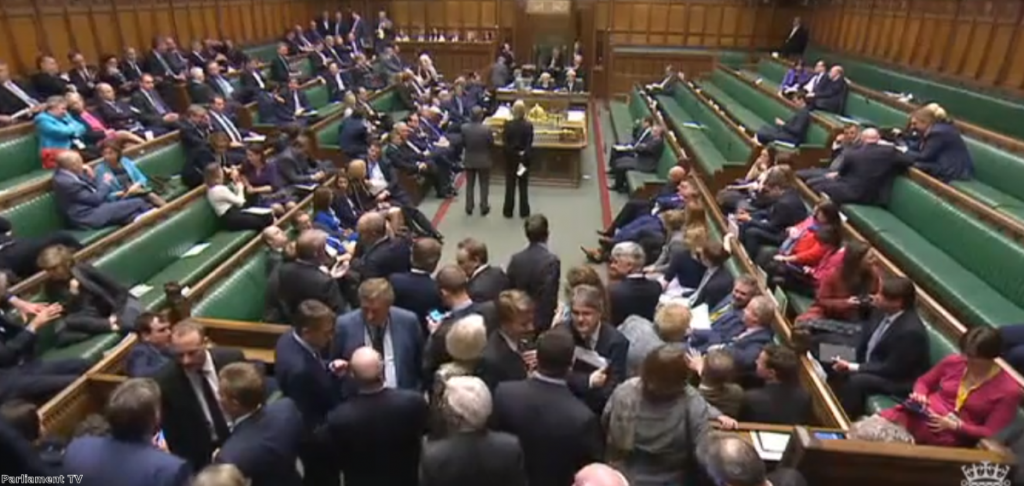So I’ve come under a bit of flak for this piece, which suggests the refugee vote last night was lost because not enough Labour MPs turned up.
@IanDunt @Politics_co_uk Come on now. This is balls and you know it. You owe readers a proper explanation of how this vote was not lost.
— Peter Mannion MP (@PeterMannionMP) April 26, 2016


.@stephenkb who is this ill-informed numpty @IanDunt who doesn't understand pairing?
— Ben Bradshaw (@BenPBradshaw) April 26, 2016
Very easy to ignore the pairing system. It sure makes good clickbait. https://t.co/CS6Igl9qQc
— Tom Williams (@tomwilliamsisme) April 26, 2016
This is such a shit headline, the writer of this knows it's due to pairing so stop clickbaiting? https://t.co/vx2KtRjrmL
— Matt Mann (@CllrMattMann) April 26, 2016
OK, so the piece is written in a style which is a little look-how-many-MPs-turn-up-to-debate-their-salary and probably I should have tuned that aspect down a bit. The headline was a misjudgement on my end. It is simplified to the point of unhelpfulness.
However, this isn’t just a mea culpa. A few people online are suggesting I’m playing down ‘pairing’ – an informal parliamentary procedure where MPs on both sides of a vote agree to balance out each other’s absence – in order to attack Labour.
Actually pairing is not quite as simple as all that. A party decides when it wishes to do pairing. It does not do so when the vote is very politically important.
For instance, Labour did not allow pairing on the votes over tuition fees or the bedroom tax. The fact that pairing is allowed for a vote demonstrates the relative importance attached to it by the party which does it. Given that this vote involved saving 3,000 child refugees from these conditions, that is a reasonable point to make.
It’s also argued that not allowing pairing just means you have to drag lots of sick or bereaved people into the Commons for a vote, or cancel a bunch of trips overseas. The argument runs like this: As an MP you inform the whips of your absence a few days before a vote. So ending pairing just means the Tories would have dragged their MPs back too.
That’s true, as far as it goes. But pairing is undeniable useful to the government. It means you can take a potential rebel in your own ranks and say: take the day off. No need to come in. Stay in your constituency. You can do that knowing that they will be paired and neutralised on the other side. It means you don’t need to keep your eyes on them on the day of the vote and prevents any opportunities for last-minute Damascene conversions. Basically, it makes life easier for the governing party.
I made a error not going into those details in that news story. I should have done it as a blog and teased them all apart. It was a quite significant error, because it threatens to mislead rather than inform the reader. That’s something we always try to avoid on this site.
But the use of pairing is not quite as simple as many people online make out. Labour were asked not to allow pairing on this vote by the Lib Dems. Would doing so have won the vote? It’s hard to say. Probably not. But Labour’s decision to allow pairing is worthy of mention on its own right, especially given the (rightly) high flying rhetoric coming from MPs on the Labours benches last night.

